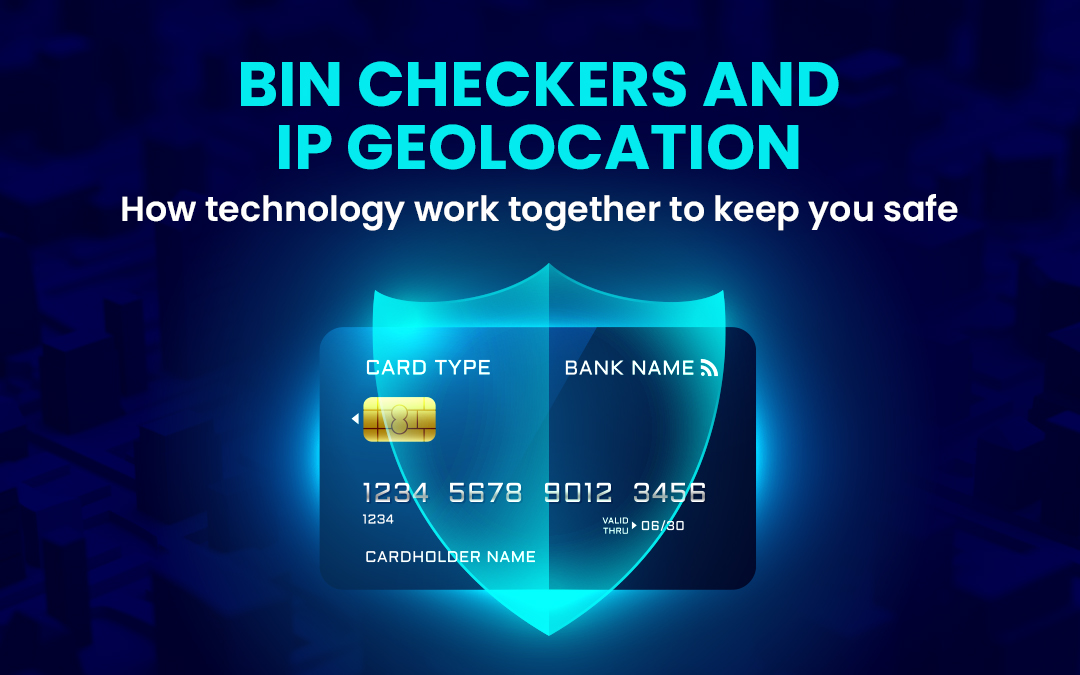
If you’ve ever used online services or made purchases over the internet, you’ve encountered the process of data verification. Today, we’ll explore how BIN checkers and IP geolocation work and why their synergy is crucial for your security.
What are BIN checkers?
A BIN checker is a tool that verifies the first part of your bank card number, known as the Bank Identification Number (BIN). The BIN consists of the first six digits of the card and contains information about the issuing bank, card type (debit, credit), and even the country of issuance.
Of course, a card BIN checker is just a tool, not a security guarantee. It helps detect suspicious data but doesn’t replace comprehensive verification processes.
Imagine you’re traveling and want to buy something online. If your BIN and IP address indicate different countries, the system may request identity confirmation. It can be inconvenient, but this is how your funds are protected.
Why are BIN checkers important?
- Fraud prevention: If you attempt to make a payment with a card issued in one country while your location shows another, it could signal fraudulent activity.
- Enhanced user experience: Stores and services can automatically adjust interfaces to match your region, currency, and language.
- Regulatory compliance: Some transactions are prohibited in certain countries. BIN checkers help block such operations.
What is IP geolocation?
IP geolocation is a technology that determines your location based on your IP address. An IP address is a unique identifier for your device on the network. It provides information about your internet service provider and approximate location.
How does IP geolocation work?
- Data collection: Your IP address is sent to a server when you connect to the internet.
- Database matching: The server cross-references your IP address with a database containing provider and regional information.
- Location identification: Based on the data, it determines your country, city, and sometimes even your district.
Why combine BIN checkers and IP geolocation?
When these technologies work together, they reinforce one another. Here’s how it works in practice:
- Dual verification: If the BIN indicates a card from the U.S. but IP geolocation shows you’re in another country, the system might require additional authorization.
- Risk analysis: Matching data reduces the likelihood of fraud. A mismatch raises a red flag, and the transaction may be stopped.
- Automation: These technologies enable businesses to make quicker decisions, saving you time.
The future of these technologies
BIN checkers and IP geolocation are evolving. Modern systems are beginning to consider additional factors like transaction history and user devices. In the future, these technologies will become even more accurate, minimizing fraud risks.
Conclusion: tips for users
- Always double-check the accuracy of your data entries.
- If a transaction gets blocked, contact your bank or customer support.
- Use VPNs only when absolutely necessary, as they might trigger system suspicion.
These technologies are an integral part of the digital era. They make your life more convenient and secure while helping businesses protect their interests. The more you understand how they work, the easier it will be to navigate online services without unnecessary worries.
Share this post
Leave a comment
All comments are moderated. Spammy and bot submitted comments are deleted. Please submit the comments that are helpful to others, and we'll approve your comments. A comment that includes outbound link will only be approved if the content is relevant to the topic, and has some value to our readers.

Comments (0)
No comment